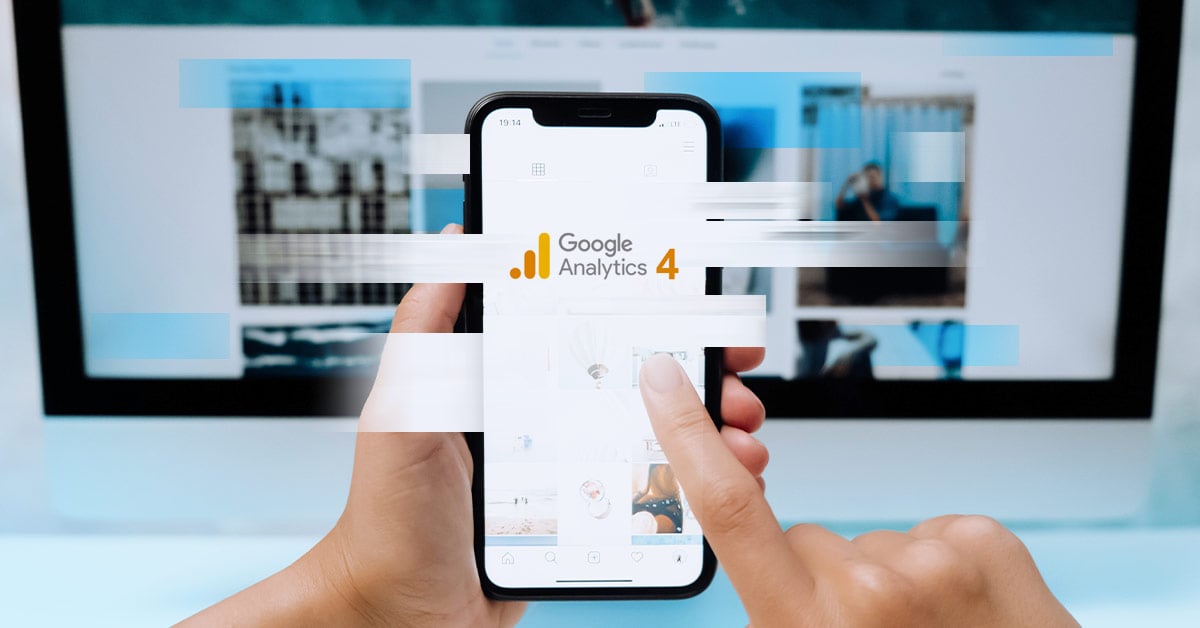
The New Google Analytics: A Deep Dive Into GA4
It has been over two years since Google introduced App + Web properties in Google Analytics (GA), and one year since the property type was aptly reintroduced as Google Analytics 4 (GA4), the fourth generation of the leading web analytics platform. GA4 has already proven to be a vital tool for every marketer’s toolbox, especially as we venture further into the increasingly mobile, privacy-first era of digital marketing.
If you are just learning about GA4 or wondering if it's right for your business, our team of digital experts is here to help! Keep reading to learn more about key differences between GA4 and the previous generation of GA, Universal Analytics.
What's New?
The first thing you'll notice when you create a GA4 property is the interface is vastly different. It’s cleaner, more streamlined, and more responsive than Universal Analytics. After further inspection, you will also notice that the platform is capable of ingesting web-based data and app-based data, all in one property — arguably one of the most important features of GA4. Here’s what’s new:
1. GA4 unifies app and web analytics
Using a GA4 property for exclusively web data or app data is always an option. However, if your business has various places where users may interact with it (e.g., an app or Google Ads), GA4’s data stream feature allows you to combine reporting and insights into a single Analytics property. Analytics’ use of a single set of consistent metrics and dimensions allows marketers to see integrated reporting across app and web properties in a way that was not possible in Universal Analytics.
2. GA4 uses machine learning to address measurement gaps
As cookies and other identifiers become scarce, it will be increasingly challenging to confidently derive insights from cookie-based measurement platforms. GA4 uses advanced modeling technologies that allow marketers to identify correlations and trends between key data points, attribute conversions to the proper marketing channels via conversion modeling, and, coming soon, answer questions pertaining to funnel drop-off, customer acquisition, and more through advanced behavioral modeling.
3. GA4 uses an event-based data model
For more seasoned Analytics users, you may know Universal Analytics is reliant on a session-based data collection model. A session is a group of user interactions with your website that take place within a given timeframe. During a session, GA collects and stores user interactions (e.g., page views, transactions, etc.) as Within a single session, multiple hits may be collected depending on how a user interacts with your website.
In GA4, session data is still available, but Analytics now collects and stores user interactions as Events collect and send pieces of information that better specify the action a user took and/or add further context to the event or user. For example, you can measure the value of a purchase, the number of products purchased, and the user’s geographic location, all in one event. Best of all, many standard events come right out of the box, meaning there is no additional coding required.
💡 BIG IDEA: Event-based data collection enables more flexibility, scalability, and customization.
GA4 Is Built For The Future
The impact of rising consumer expectations, an active regulatory environment, and inconsistent user privacy standards have hastened the evolution of digital marketing and established a mandate for marketers to invest budgets in future-focused, privacy-centric programs. Luckily, GA4 is a low-barrier solution that any business can adopt. Best of all, there is so much more room to evolve within GA4’s framework; businesses can count on seeing new features roll out over the next several months that will make data collection and reporting even more personalized.
To get started on making the switch to Google Analytics 4, here’s a great step-by-step guide. You will learn best practices for account structuring, how to create data streams, how to migrate existing UA goals and conversions to GA4, and more.
We'll Help You Harness The Power of GA4
As Oklahoma's only Google Premier Partner agency, we are uniquely skilled in using GA4 to help organizations reach their goals. With GA4's powerful capabilities, we'll help you uncover audience insights and optimize marketing efforts across all of your web properties.
Want to know more?
Talk with the region's most dynamic digital team to see what GA4 can do for you.








